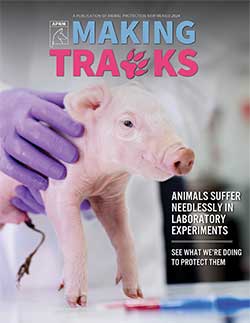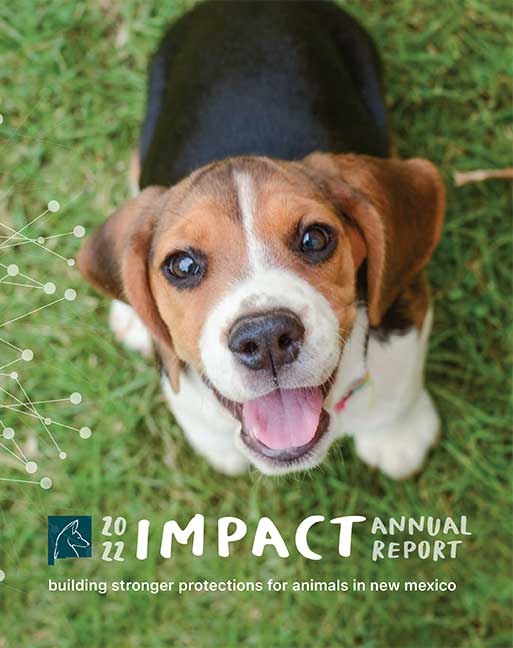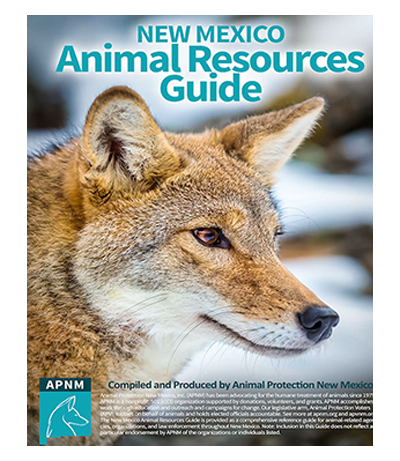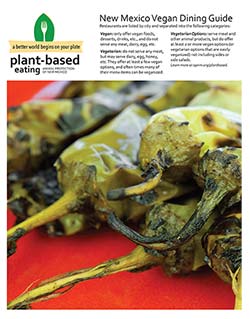Weathering The COVID-19 Crisis: Preparedness for Your Companion Animals
The COVID-19 global pandemic is affecting us all and it’s a challenging time to care for ourselves and our companion animals. For those who have reached out to us for advice—and all our supporters—we hope the following information will help you feel more prepared and in control of things you can influence.
Here’s what you can do for your companion animals as the COVID-19 crisis continues:
Food for Animals
Check websites or call your preferred local pet food supply store for information about availability and services. If ordering online, you may need to place food orders earlier than you would under normal circumstances.
Medicine for Animals
Check with your veterinarian to determine what the process will be for refilling your animal’s prescriptions. Some veterinarians are delivering refills through the mail, some are utilizing curbside pickup. You can also use online prescription refill services either through your veterinarian or through a vendor such as www.1800petmeds.com.
Veterinary Services
Contact your veterinarian BEFORE going to the clinic, according to the American Veterinary Medical Association (AVMA). Your veterinarian may have advice about the need for a visit, the possibility of postponing elective procedures, and even the availability of telemedicine consultations.
Keep your veterinarian’s number within reach (perhaps programmed into your phone), as well as the number of your closest veterinary emergency clinic.
If You Become Sick
As part of every emergency preparedness plan, anticipating who will care for your companion animal if you are unable to is essential. In the current health crisis, it would be wise to have a list of trusted people who would be willing to care for your animal if the need arises. Planning ahead will help to alleviate some of the stress of navigating through this pandemic.
If you do become sick with COVID-19, there are several precautions you should take, per the AVMA. While there is no evidence to date that companion animals can become sick with this novel Coronavirus, there is still much that is not yet known. Here are some suggestions:
- If your doctor advises you to self-quarantine, utilize the same precautions with your companion animals, including limiting contact with them, washing hands frequently, not sharing food or kisses with them.
- If there is another member of your household who is able to do so, have them take care of walking, feeding, and playing with the animal.
- If you must care for your pet yourself, wear a face mask and be sure to follow all the precautions above.
- If you are ill and your animal needs to see your veterinarian, contact the veterinarian to see what they recommend.
In general, you should seek advice from your veterinarian to ensure that the animal gets appropriate care while minimizing the risk of transmitting disease to other people. The AVMA offers an excellent discussion of these issues and other related topics on their website.
General Emergency Preparedness for Companion Animals
Your emergency preparedness plan for your animal should include:
- Remember your pets when you are stocking your home pantry.
- Make sure you have any appropriate medicine on hand, and that you are properly storing the medicine if there are requirements for ensuring the medicine will remain effective.
- Make a pact with friends or family members for the care of your pets in the event you become sick, require quarantine, or are hospitalized.
- Make sure your animals are always wearing proper identification. It is never a good idea to allow companion animals to roam freely, but especially during this crisis, make sure they are contained.
A Plan for The Future
In the long run, whether you are navigating a public health emergency or not, it is wise to make provisions for your companion animals because of the possibility that they could outlive you. There are many resources available online to help you develop a plan. Here are some of the most frequently recommended steps to take:
- Realize that in the eyes of the law, your animals are considered “property.” As such, they will be treated like any other of your belongings if you haven’t specifically provided for them in your will.
- Include provisions for the care of your animals in your will or trust.
- Speak with family and friends now to determine who would be willing to provide a loving home for your animals.
- Some shelters will promise to find your animal a forever home if you leave a gift to the shelter.
- In addition to naming the caretaker for your animal, it’s often a good practice to leave a specific gift to the caretaker that is meant to cover veterinary, food, and other costs related to the animal’s care for the remainder of their life.
For detailed information, sample language for your will, and more, visit https://www.petfinder.com/dogs/bringing-a-dog-home/providing-pets-future/
Disaster Preparedness
A 2015 survey conducted by the Federal Emergency Management Agency found that many Americans are not ready for a disaster. Only 39% of those surveyed have made an emergency plan. It is likely that fewer still included companion animals in their plans.
APNM strongly encourages families and community leaders all across the state to include companion animals in planning and preparing for disasters. Although APNM is not a direct resource for disaster planning at this time, this page contains a number of valuable resources and links that people can use to develop their own emergency evacuation plans. If you live in a drought-stricken region of the country like New Mexico, the time to start making your emergency evacuation plans for you and your companion animals is today.
“I was that person who said to himself and others, ‘Yeah, I should really make a fire plan.’ I am now that person telling others to do it. Do it today. I am not kidding. When it is upon you, it is terrifying.”
–Daniel Abram, Deputy Director of APNM





